Rober Díaz. Península 360 Press [P360P].
Las listas sólo le sirven a quienes quieren comprobar que hay un arriba y un abajo, una izquierda y una derecha; en términos reales, las listas son necesarias para darle una ubicación a los lectores, entablar diferencias y parangones entre cosas disímiles no es un invento moderno, pero todas estas generalizaciones –tarde o temprano– terminan banalizando al objeto que se analiza pues, fuera de los números que las listas dejan, queda la estela de impresiones que varía de acuerdo con el compilador donde se hallan ocultas.
Las redes sociales, por otro lado, le han dado un nuevo auge a todo lo que se puede contabilizar porque es más fácil acudir a la lista que alguien sugiere a indagar por uno mismo, aunque ello supondría –irónicamente– ir a otras listas.
No es raro que las listas inunden las redes hablando de los peores y los mejores, siempre segmentando y, a la vez, dándonos una característica de nuestra era: nuestra generación está mediatizada por los números, las estadísticas y los resultados breves.
La siguiente lista es anómala y por decir lo menos, arbitraria y ni siquiera habla de los libros del 2021, es una lista con algunos datos sin importancia y con opiniones que sólo rinden tributo a crear suspicacias sobre los autores que aquí se mencionan.
1. La novela luminosa, de Mario Levrero. Random House.
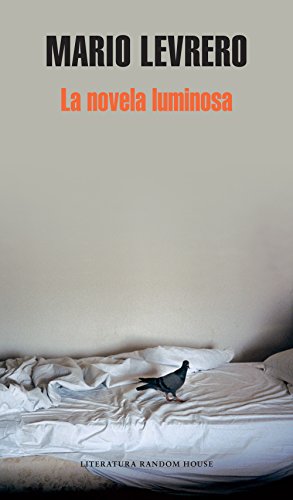
No había tenido la oportunidad de leer esta novela a pesar de su gran fama y de ser considerada como una de las mejores del siglo XXI.
Fue publicada en el año 2005, un año después de que el escritor muriera y a cinco años de que se hiciera acreedor de la prestigiosa beca Guggenheim –tal vez, el único reconocimiento internacional que en vida recibiera– con la que hizo este Romance en el que desarrolla un diario donde no pasa mucho, pero en realidad pasa todo.
Levrero habla sobre su intimidad desde una sinceridad desnaturalizada que hace creer al lector que toda la anormalidad que constituye su día a día es, por decirlo contradictoriamente, normal.
No se ve aquel mundo donde los escritores reflejan momentos llenos de grandes reflexiones y perspicaces diatribas. Aquí hay un hombre lleno de miedos e inseguridades que, a la buena usanza de un fardero, va sobreviviendo de a poquitos en una vida que no le deja grandes experiencias ni tampoco grandes enseñanzas, pero que sí, por otro lado, le va dando entrada a un mundo lleno de misterio y experiencias ulteriores casi oscuras e inadvertidas desde donde Levrero logra sacar luz.
Lo cotidiano habla sobre las más bellas artes del ser humano que no sólo se limita a vivir, sino que, dentro de la experiencia, intuye, descubre, dentro de lo más simple, lo más bello.
2. Temporada de huracanes, de Fernanda Melchor. Random House.
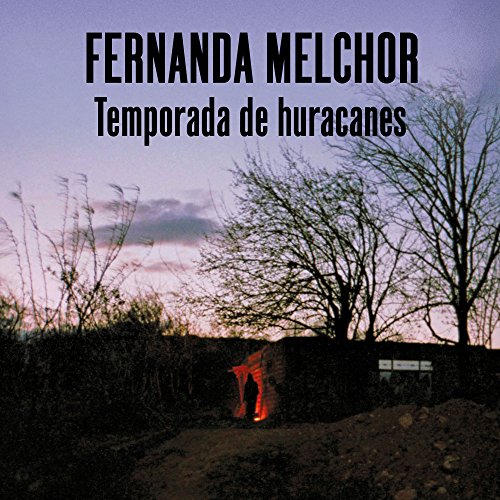
Un suceso literario.
Si hace algunos años la prosa de Alvaro Enrigue deslumbró por su novela Muerte súbita y unos años antes lo hizo Xavier Velasco con su Diablo guardián, Melchor vuelve a iniciarlo todo.
La trama va sobre una bruja que bien puede ser un travesti –y que a lo mejor ni bruja era– que es asesinada en medio de un país que se cae a pedazos.
La crudez de su relato recuerda los peores momentos que logra Osvaldo Lamborginni en su Tadeys, sin dejar fuera a Daniel Sada, un maestro que Melchor no rechaza ni emula, sólo lo pone en el tintero recordándolo, si bien con mucho aprecio, no le debe nada; y es que la literatura de Fernanda resulta una renovación en la literatura mexicana pues puede sonar a varias influencias y; sin embargo, al terminarla, se sabe que eso que ahí se narra –junto con la manera de hacerlo– antes no existía.
Demuestra, como alguna vez lo advirtió Borges, que existen sólo dos o tres historias, lo importante es decirlo de otra manera. Fernanda Melchor tiene una forma única, su propia voz y ha levantado ámpula pues no ha necesitado de los grandes aparatos publicitarios y, sobre todo, de un nido de amigos que hayan tenido que darle palmaditas en la espalda y hacerle reseñas a su modo para triunfar.
3. Nuestra parte de noche, de Mariana Enríquez. Anagrama.
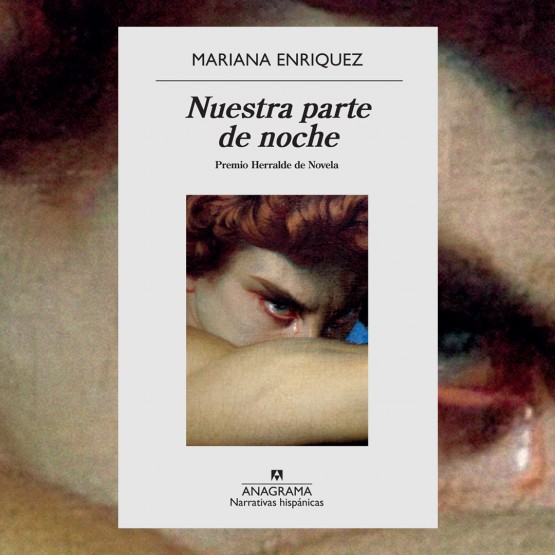
La influencia de esta novela ya se deja sentir en los corredores de las nuevas generaciones de escritores latinoamericanos. Ni más ni menos, estamos frente al renacer de la literatura de Terror –si es que ésta alguna vez existió– desde una óptica que antes no habíamos dimensionado.
Si Fernanda Melchor había dado muestras del camino por donde desfilarían los nuevos escritores, Enríquez logra una novela que gira ante hechos anormales.
Un padre y su hijo atraviesan la Argentina del dictador Videla. Él está muriendo y se va guiando por las visiones que tiene él y su hijo de espíritus que les salen al paso; don que le ha heredado a su vástago. Busca un sitio donde encargarlo y la búsqueda los coloca frente a personajes con las vicisitudes más que extrañas, cargadas de misterio donde sociedades secretas y mitos reinventados comulgan para avanzar sobre algo que ya no podríamos llamar Realismo Mágico sino en otro sentido terror fantástico.
Enríquez ha venido hablando sobre los mitos de su Argentina, así como también ha explicado en relación con qué y cuáles mitologías es que todas estas narrativas de provincias han alimentado su permanencia en el imaginario de las personas. Enríquez suele dar entrevistas en panteones, tiene una personalidad inquietante. Con este libro ganó el premio Herralde como mejor novela del 2019.
4. Casas vacías, de Brenda Navarro. Sexto Piso.
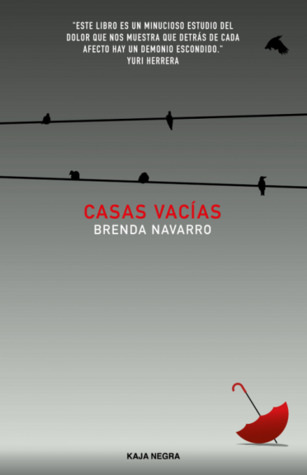
Esta novela tiene una suma de varios dolores y también inunda con su propia desazón la historia que cuenta.
¿A qué se apega? Al dolor y, por eso, puede resultar desbordada y hasta intolerable, pero, si tú perdieras un hijo, ¿cómo podrías transmitirlo? Es precisamente en este rubro, el de expresar dolor, ahogo y penumbra, que no descansa y, por eso, resulta reveladora.
No se despoja en su deseo de extremar las sensaciones ni concede al lector descanso. El dolor que se experimenta dentro de esa novela es equivalente a una patada en la espinilla. Insisto que se requiere de nervios de acero para afrontar la perdida que sufre el personaje pues, como diría Fiódor Dostoyevski: «Cuanto más oscura es la noche, más brillantes son las estrellas. Cuanto más profundo es el duelo, más cercano está Dios».
Seguramente lo que se le perdió a Navarro fue ese Dios del que Fiódor hablaba.
5. Exhalación, de Ted Chiang. Sexto Piso.
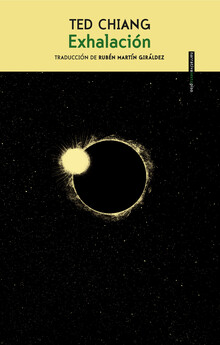
La Ciencia Ficción ha ido a parar directamente a un baúl donde los espectadores sólo la buscan cuando ven realizadas las tramas como películas; sin embargo, a este lugar, muchas veces, primero llega la literatura.
Ted Chiang es un ingeniero en informática que con sólo dos libros ha puesto de cabeza a la comunidad que disfruta de este tipo de historias, tan aclamadas en el cine, tan menospreciadas en la literatura.
En Exhalación, cuento homónimo que le da título al libro, Ted no va contando historias en futuros distópicos, sino que entiende y examina, con ánimo de cuentista, las posibilidades donde nuestra imaginación pudiera estar varada. No sentencia y dicta, construye historias que llevan al espectador a pensar y no sesudamente sino dentro del ámbito de la narrativa que es el mejor sitio para convencer sin complicar las tramas hasta volverlas imposibles.
Chiang, fue seleccionado y descubierto por el cineasta Dennis de Beneville para llevar el cuento titulado The History of Your Life a la pantalla grande con el nombre de «Arrival» y pronto se convirtió en la película de Ciencia Ficción más influyente de la década según los expertos en listas.

